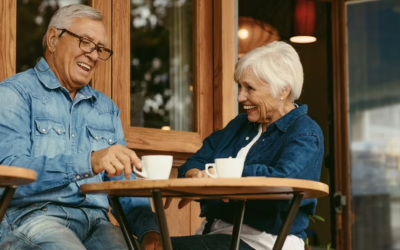Last week Jeremy Duffield wrote about ways to understand and manage economic volatility. We received a lot of feedback on this article as it is a widespread concern for retirees. Jeremy’s stance is similar to that of most respected commentators; that it’s necessary to stay calm, avoid unnecessary kneejerk withdrawals and things will turn around.
But because that is the commonsense view doesn’t mean it can be embraced by every retiree. It’s important to recognise that some retirees are finding this advice really difficult to follow. Some say that they feel trapped, with dwindling assets and uncertain future income, and no way out.
Meet June and Marcus
June and Marcus(not real names) are one such couple. They contacted us last week as they wanted to better understand if they had any options at a time when they feel as though their finances are spiralling out of control.
What’s their situation?
They are both fully retired, on a combined couples part-Age Pension. Their personal assets are:
Andrew’s Super: $500,000 in an Account-Based Pension (ABP)
Louise’s Super: $200,000 – in an ABP
Bank account: $10,000
Personal assets: $50,000
They live in their own home with a small mortgage ($50,000). Their current combined Age Pension entitlement is $22,417.
At the time of speaking with Andrew, there had been a 6% drop in their super assets (this has since fluctuated even more). In adjusted terms, this means that their current financial assets are:
Andrew’s Super: $470,000 (ABP)
Louise’s Super: $188,000 (ABP)
Bank account: $10,000
Personal assets$ 50,000
So they felt that they had watched their super reduced by $42,000 in less than a week when the Australian Stock exchange had lost around 4%. This loss was on top of a 5% slide in their super savings since 1 January this year.


